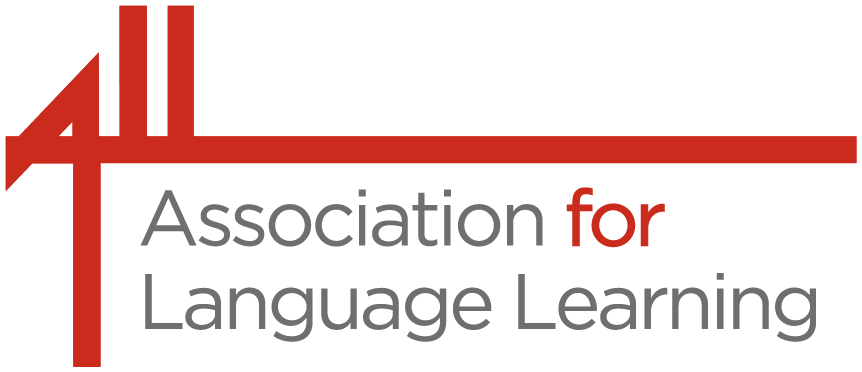Introducing Jane Harvey, ALL‘s President Elect. The President Elect sits on the Association’s board of trustees, its Management Board, which comprises three elected Officers: Honorary Membership Officer; President Elect; President and up to five invited Trustees. As President Elect Jane will serve a one year term 2017-2018, and will be supported by the serving President and fellow trustees, after which she will assume the President’s role from 2018-2020, when Dr. Anna Lise Gordon concludes her term.
What are you looking forward to most in your role as President Elect?
I am really looking forward to speaking up whenever and wherever I can for the importance of languages in education particularly after Brexit. There is so much talk from the Government about Global Britain and being open for business but very little about how we are going to communicate with new trading partners when it will be us that wants to do business with them.
Can you describe the career you have had in languages?
I taught languages in the state and private secondary sector at all levels from Primary to A Level. For the latter part of my career, I worked in Further Education, the most overlooked and least celebrated part of our education system. Further Education did fantastic work in languages for young people, from A Levels to evening classes for adults and as part of vocational programmes. Sadly, since 2010, funding for the sector has been cut year on year and languages squeezed out of vocational programmes. I finished my career as Head of Learning at Gloucestershire College
What languages have you learned?
My main language is French and I also taught Italian, which I started at University and loved. I have learnt some Welsh in recent years – finding a course to learn Welsh as an adult, even in Monmouth, which is overwhelmingly English speaking, – is easy and courses are subsidised by the Welsh Government. There are day and summer schools as well as conversation clubs all over Wales.
What inspired you to become a languages teacher?
I never intended to be a language teacher! I read Drama and French at Bristol University in the late 1960s when it was not possible to study Drama as a Single Honours subject. I wanted to be a theatre director and started my own amateur theatre group, earning money as a languages teacher. Somewhat to my surprise, I loved teaching languages and very quickly became passionate about all students having a chance to acquire this wonderful skill. Speaking another language, at whatever level, enriches lives by communicating across cultures and opens up opportunities for work and travel.
What do you think are the current challenges in the teaching of languages today?
Languages in the primary sector are going through a very exciting time – the teachers are so creative and children are keen to learn. One of the big challenges is to keep this enthusiasm in secondary school, especially when Year 7 pupils come from many different primary schools with different languages and levels.
At secondary level, having the support of the Senior Management team is crucial to ensure languages have enough teaching time, spread throughout the week and an accessible place in the option choices in Year 9. The issue of severe grading still needs to be fully addressed . Why should pupils opt for a language at GCSE when they are likely to gain a grade lower in the language than in their other subjects? Ofqual this year has started to address the issue at A Level by recognising the effect of native speakers on the top grades
How do you think ALL best supports language teachers?
By speaking up for languages and making our voice heard with the decision makers. ALL is well placed to do this as a body which is consulted by the Government. Having sufficient speakers of other languages is essential to the success of the UK’s economy. We also don’t highlight sufficiently the language skills many of our fellow citizens already have, those for whom English is a second language. We need to make the case for other language qualifications other than GCSE. NVQ language units used to allow students to learn a language in a practical setting and gain credit for it. In Wales, there is a new qualification, Global Business Communication, which has many of the NVQs strengths and I hope this is the start of a trend.
What will be the first few projects you will be undertaking in your role?
I would like to find out from members what support they need from ALL. One area where I definitely think we can grow is supporting the professional development of language teachers. There is a real gap since the disappearance of CILT and its Pathfinder series which were of great use to teachers. Providing really useful CPD would meet a real need as shown by the great reception there has been to our recent publication, the new Head of Languages handbook. And of course we already offer face to face CPD at Language World, our fantastic two day annual conference held every Spring as well as throughout the country in our branches and networks during the academic year.
Do you have any advice for anyone considering learning a language?
Don’t hesitate, just do it! Learning a new language will enrich your life and research shows it will keep your brain active longer!
How do you “fly the flag for languages” in your daily life?
I set up the first ALL network in Wales in 2014, Border Marches. We attract teachers from both sides of the Border to our termly twilight sessions, which combine a speaker with a chance to network over a tea or coffee. I can make myself understood in (Swiss) German as a result of spending a year as an au pair in Liechtenstein before going to University and have joined a German club in Monmouth to try and improve my knowledge.

